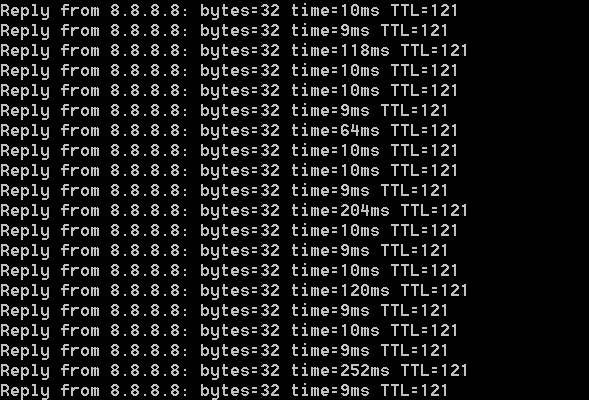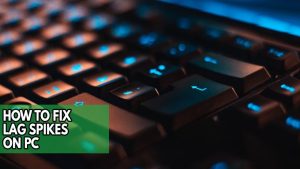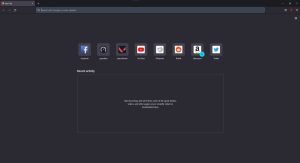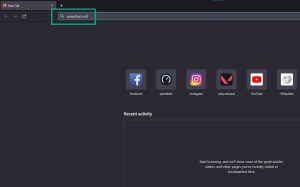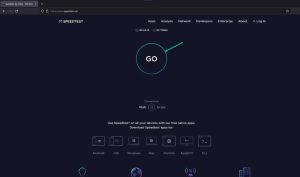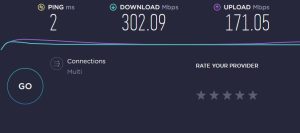If you see an interruption in your network and a momentary slowing or lagging or Ping Spikes, you may be experiencing a ping spike. Depending on your network, devices, and the server to which you’re connecting, your ping only sometimes remains constant, but there is often a typical average that you may anticipate. Ping spikes that are much above average or occur regularly might negatively damage your computer.
How does Ping function?
Ping is an abbreviation for Packet Inter-Network Grouper, a signal transmitted from one device to another to test the connection. If you have low ping, your connection between the device sending the ping and the device receiving and returning it will be swift and seamless.
People acquainted with networking perform ping testing to identify problems between devices and troubleshoot sluggish and unresponsive connections. The issue with your ping might be between your computer, the network, the modem, or the server to which you connect for the software in which you see ping spikes.
What are Ping Spikes?
Ping spikes are rapid ping increases more significant than the connection’s usual ping. For instance, if the typical ping duration between your computer and a gaming server is 45 milliseconds, but it occasionally jumps to 350 milliseconds, you are experiencing a ping spike.
Ping spikes occur sometimes and are usually nothing to worry about. However, persistent or regular ping spikes warrant investigation so that the cause may be determined and the connection can be repaired.
What effects do Ping Spikes have on my network connection?
When the ping increases, you may experience network latency. In a video game, specific orders may be processed slower, causing your character to appear lagging, or you may observe movements halt and move very swiftly for a minute.
Knowing your average ping might assist you in determining what ping levels are normal and which are abnormal.
How to Correct Ping Spikes:
There are several methods to eliminate ping spikes on your PC. If the ping spikes are generated by a server to which you are connected, there are fewer alternatives for resolving the issue.
Here are some steps to resolve computer latency spikes.
Fix #1 Check your internet connection.
A sluggish Internet connection may be blamed if the lag increase is severe. Using Internet programs such as speedtest.net, it is simple to assess the quality of your Internet connection.
Download, Ping, and upload speeds are the three most important parameters to consider throughout the speed test. Ping times should be between 10 and 60 milliseconds on average. Anything exceeding this threshold will affect your gameplay.
Your download and upload speeds should correspond to your ISP’s plans.
Time Needed: 3 minutes
Checking your internet speed
Open a browser window.
- Utilize whichever browser you like.
On your browser, launch the speed test by typing speedtest.net.
- It will take you to the website for speed tests.
Select the Start button.
- It will begin the speed examination.
Examine speed results.
- It displays the results for connection speed.
- If the results are unsatisfactory, attempt the following procedures to enhance and correct connection faults.
Restarting equipment
Step 1: Power down the computer.
Step 2: Disconnect the power cables from the router and modem.
Step 3: Reconnect your router or modem to the power source and switch on the devices after one minute.
Step 4: Wait for the lights to turn on.
Step 5: Start your computer.
Update second network adapter drivers
The next point is to update your network adapter; if you have out-of-date network drivers, you may upgrade your network adapter driver to resolve network slowness and Ping Spikes issues.
Fix #2 Update network adapter drivers
1: Type Device Manager into the desktop search box and click the icon appearing in the search results.
2: Click the Network display adapters icon The number of display adapters will increase.
3: Right-click the wireless device and choose Update drivers.
4: Select Search automatically for drivers.
5: Right-click the Ethernet adapter and choose Update drivers.
6: Select Search automatically
Fix #3 Change the default DNS server
If the issue persists, change your computer’s DNS address to a different one, such as one of Google’s DNS addresses. Changing the DNS addresses on your computer will drastically improve your connection and reduce latency Ping Spikes.
Changing DNS address
1: Type Control Panel into the desktop search box, then click the Control Panel icon that appears in the search results.
2: Click Network and Sharing Center
3: Click the Ethernet, Wi-Fi, or connection you use.
4. Click the Properties button.
5: Select Internet Protocol Version 4 (TCP /IPv4), then click Properties.
Utilize the listed DNS addresses:
Preferred DNS server: 8.8.8.8
Alternate DNS server: 8.8.4.4
6: Check to see the box next to Validate settings upon leaving, and click OK. After altering your DNS settings, you must clear your cache.
7: Launch the command prompt
Enter the following command at the Command Prompt and hit Enter.
ipconfig /release
ipconfig /flushdns
ipconfig /renew
Fix #4 Update Windows operating system
Ensure that the most current Windows update is installed on your PC. The lag Ping Spikes issues will be fixed by these Windows updates, which will also enhance the efficiency of your computer and give security patches and bug fixes. It is recommended to download and install the latest Windows update.
Upgrade Windows
Also see: Err_Cache_Miss Error in Google Chrome
1: Right-click the Start button to begin.
2: Choose Settings. It opens the Windows settings window.
3: Select Windows Update from the menu in the lower-left corner of the new window to access the Update area.
4: Select Check for updates
Fix #5 Use a wired connection
Suppose you use a wireless connection and are not physically attached to the network. In that case, you can examine the other devices connected to the router to determine which device consumes the most bandwidth.
Also see: Customize My iphone Lock Screen Wallpaper in iOS 16?
This issue of Ping Spikes may result from other devices downloading and utilizing streaming sites, which consume all available bandwidth. Use a cable connection, which is more reliable than a wireless connection, and disconnect any apps or users consuming bandwidth on your network connection.
